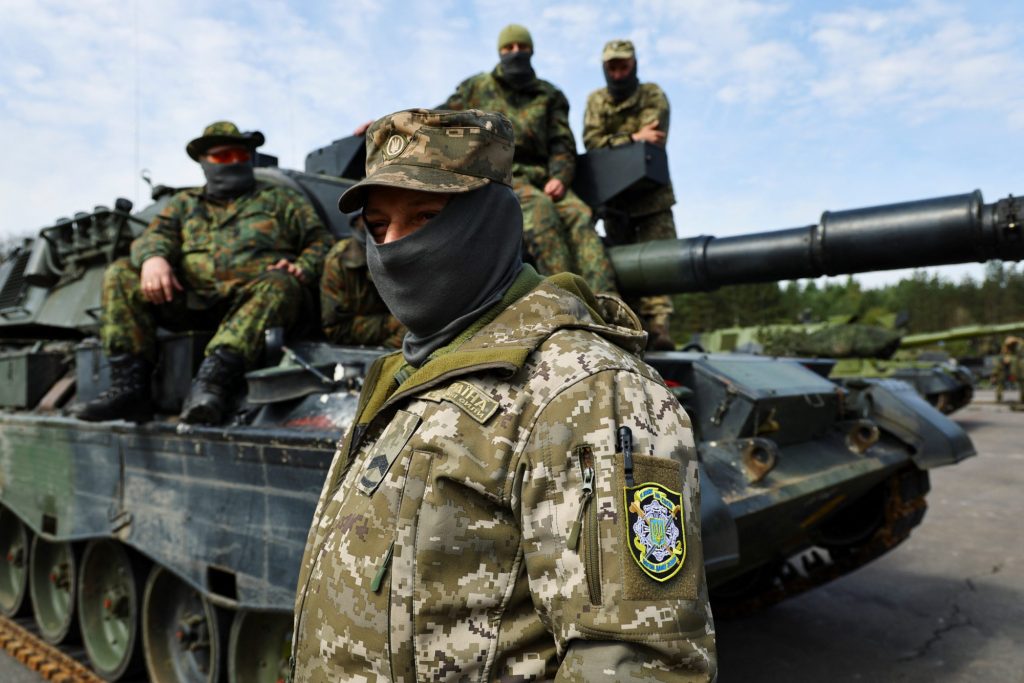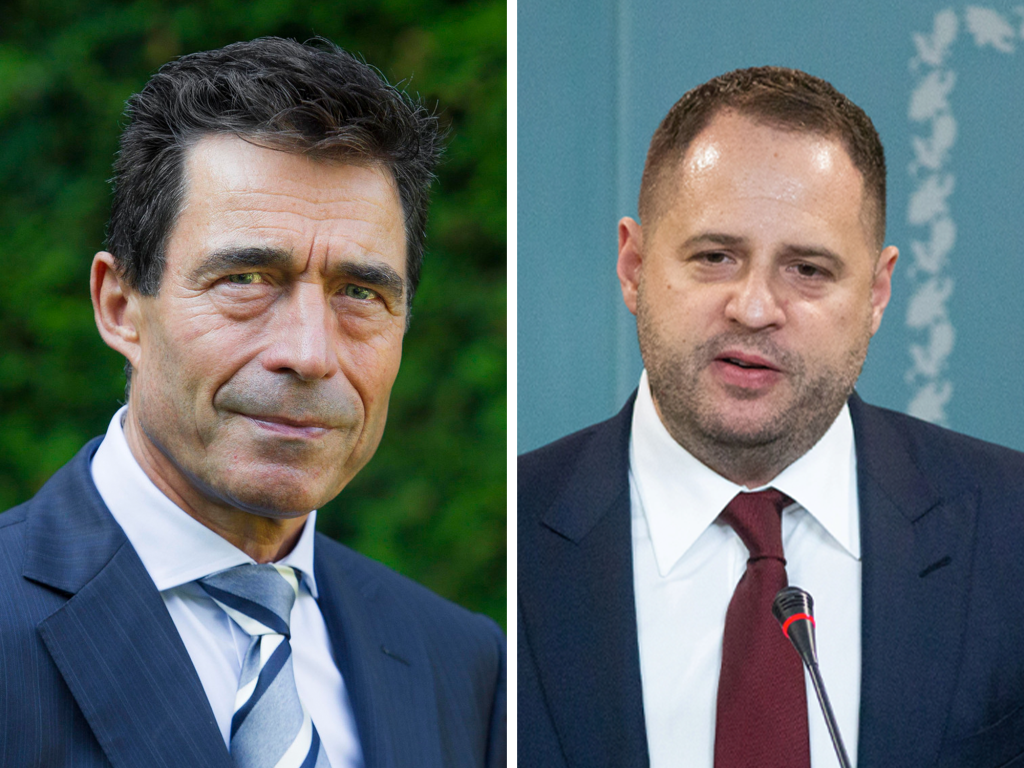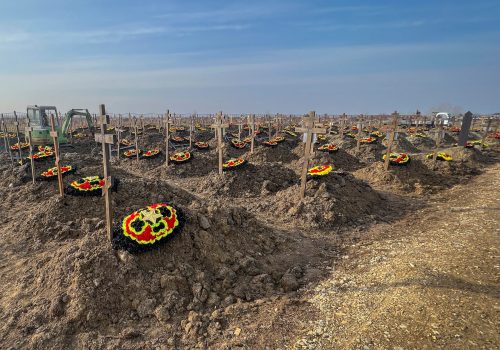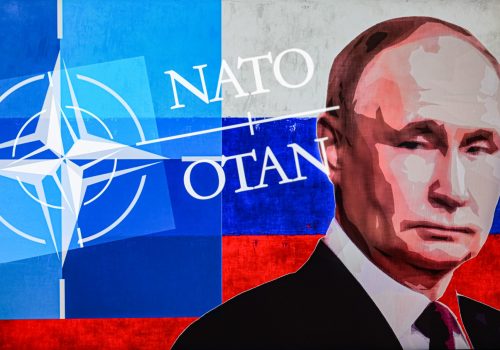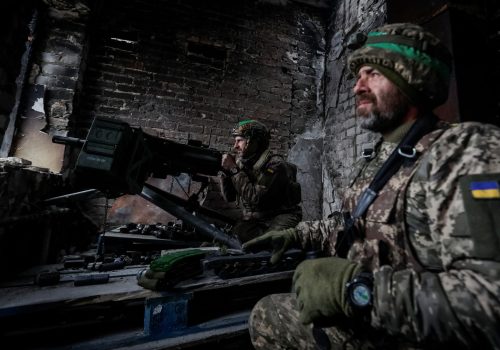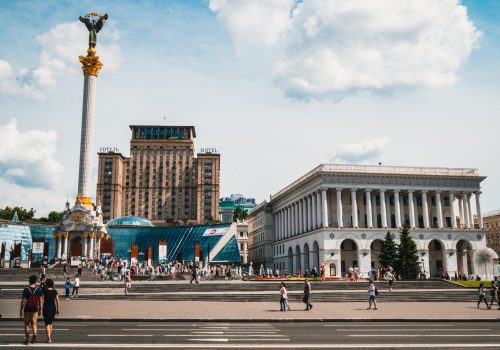
Russia’s last red line: Will the West help Ukraine liberate Crimea?

Ukraine is expected to launch a long-awaited counteroffensive in the coming weeks following months of preparations. While only a handful of Ukrainian commanders are familiar with the country’s battle plans, most observers believe the offensive will attempt to strike south toward the Azov Sea in order to sever the land bridge across occupied southern Ukraine that connects Russia with Crimea.
If the coming campaign proves successful, Ukraine could soon be in a position to begin the liberation of Crimea itself. This would mark a new stage in the war that would test both Russia’s commitment to the occupied Ukrainian peninsula and the resolve of Ukraine’s international partners.
While Ukrainian leaders remain adamant that the war will continue until the entire country is de-occupied, Moscow has made clear that it regards any large-scale attack on Crimea as a major red line and an existential threat to Russia itself. Meanwhile, numerous influential voices in the West have questioned the wisdom of a Crimean offensive amid fears that a desperate Putin could resort to nuclear weapons in a bid to prevent the loss of the prized peninsula.
Any attempt to end the occupation of Crimea will likely reveal the true strength of international support for Ukraine. Since the full-scale Russian invasion began, the Crimean question has become a litmus test for Ukraine’s Western partners; do they want Ukraine to win the war, or are they merely seeking to deny Putin victory?
Subscribe to UkraineAlert
As the world watches the Russian invasion of Ukraine unfold, UkraineAlert delivers the best Atlantic Council expert insight and analysis on Ukraine twice a week directly to your inbox.
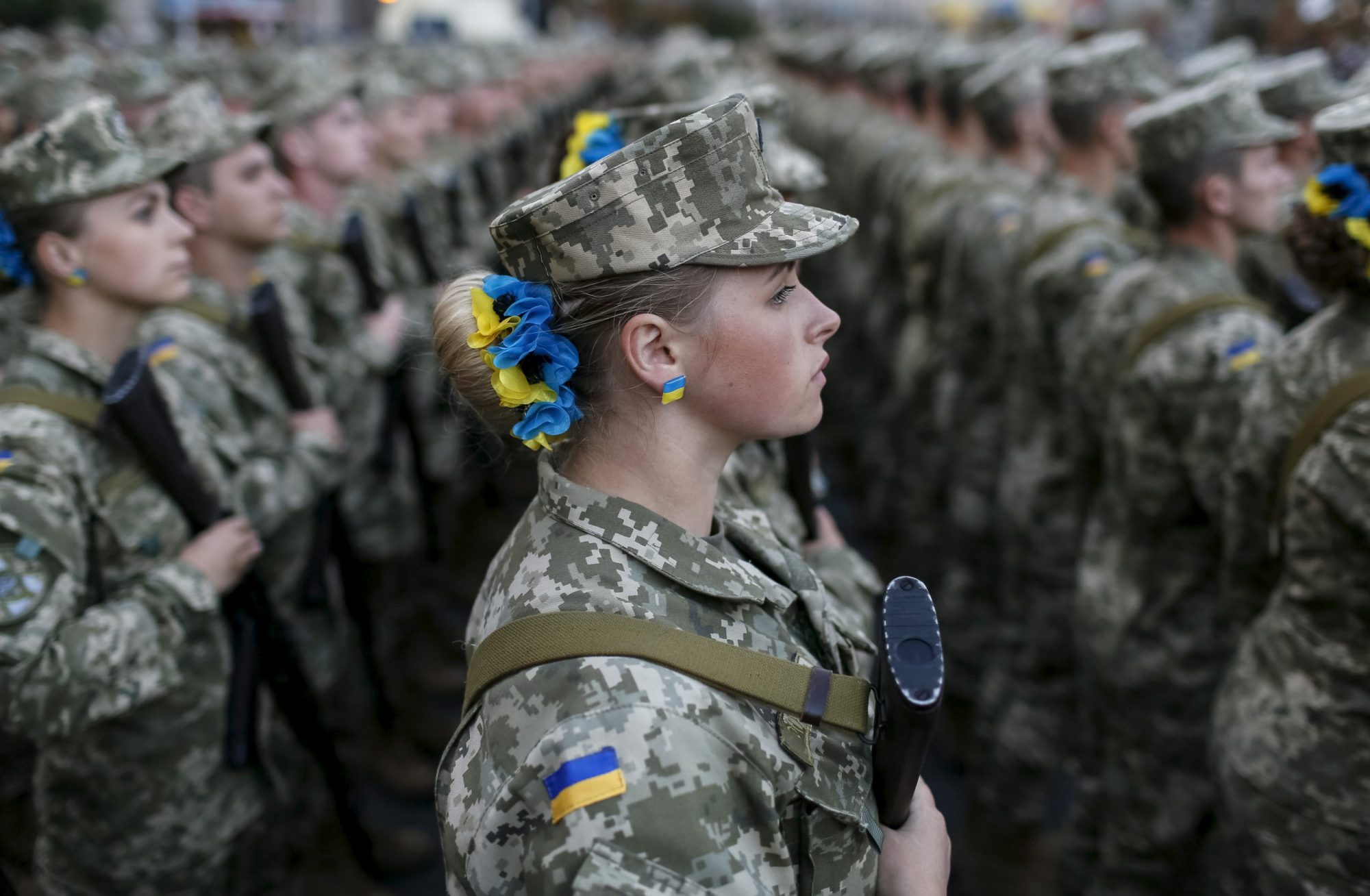
-
-
-
This field is for validation purposes and should be left unchanged.
With the Russian invasion now in its fifteenth month, the military situation is finely poised with neither side appearing to hold a decisive advantage. Although the front lines in southern and eastern Ukraine have hardly moved since the liberation of Kherson in November 2022, it is not accurate to describe the past six months as a stalemate. In reality, much has occurred.
Russia’s professional army, which was decimated during the first eight months of the invasion, has been bolstered by the arrival of newly mobilized troops in large numbers. However, these fresh soldiers have limited training and often substandard equipment. Putin’s revamped force has already experienced heavy losses during Russia’s underwhelming winter offensive. US officials recently estimated that the Russian army has suffered 100,000 casualties, including more than 20,000 dead, since December. These figures tally with widespread reports of “human wave” tactics and a steady stream of video addresses posted online by disgruntled Russian soldiers complaining of suicidal tactics and high death tolls.
Ukraine has also experienced high casualty rates in recent months, but Kyiv can now count on a large number of new troops who have undergone training in NATO countries and will be armed with modern Western weapons. Since the beginning of 2023, Ukraine’s partners have increased arms shipments to include armored vehicles and tanks in significant numbers. The Ukrainian military also has the advantage of superior satellite and electronic intelligence provided in real time by the country’s partners, as well as its own reported force of 10,000 drone pilots. Crucially, the Ukrainian military benefits from far higher motivation. While many Russians are unclear about what they are fighting for, Ukrainians know they are defending their homes and families against a genocidal enemy.
Despite these apparent advantages, Ukraine’s coming offensive is far from a foregone conclusion. Unlike earlier Ukrainian successes, Kyiv cannot rely on the element of surprise. On the contrary, Russia has hundreds of thousands of troops manning well-prepared defensive lines that have been intensively fortified throughout the past six months. Moscow also has a clear numerical and technical advantage in the air, although Russia has so far failed to establish dominance in the skies above Ukraine.
Eurasia Center events

If the Ukrainian military is able to break through Russian defenses and reach the southern coastline, Putin’s invasion force will be divided and large numbers of Russian troops will find themselves faced with the prospect of limited resupply and gradual encirclement. In such circumstances, they may be forced to retreat toward the Donbas in the east and Crimea to the south. By attacking the Kerch Bridge that links Crimea to mainland Russia, Ukraine could then effectively cut off retreating Russian troops on the peninsula. This would spark a political crisis in Moscow, which would inevitably be accompanied by a sharp rise in the Putin regime’s nuclear rhetoric.
The liberation of southern Ukraine would likely force Russia’s military leaders to address the painful issue of whether to withdraw their blockaded troops entirely from Crimea. If they chose to remain, Putin’s occupation forces could find themselves vulnerable to a campaign of Ukrainian missile and drone strikes designed to erode the Russian military’s logistical capabilities while destroying weapons reserves and command posts.
There is much debate over whether the Ukrainian military needs to mount a potentially bloody land offensive to complete the de-occupation of Crimea, with some arguing that Kyiv could simply isolate the peninsula and gradually wear down Russian forces until their position becomes untenable. Much will depend on the strike capabilities Ukraine can call upon, if and when Ukrainian troops are able to advance to the administrative borders of the occupied peninsula. A land campaign would be highly ambitious, but certainly cannot be ruled out.
International efforts to arm and train Ukraine over the past six months have been geared toward getting the country into a position where it can split Russia’s occupation forces and threaten to cross the Kremlin’s Crimean red line. And yet doubts remain over whether Ukraine’s partners will be fully supportive of efforts to liberate Crimea. If the opportunity to end the nine-year occupation of the Crimean peninsula arises in the coming months, Western leaders will have to decide if they want Ukraine to achieve a decisive victory, or whether their goal is simply to prevent Ukraine from losing.
The decisions they reach will shape the outcome of the war in Ukraine, and will also have far-reaching ramifications for the post-war international order. Will the collective West allow itself to be intimidated by Putin’s nuclear blackmail? Can Russia be permitted to redraw the map of Europe by force and retain territory seized through acts of international aggression? Western leaders need to think quickly, for the Ukrainian military is poised to advance and may soon be demanding answers to these challenging questions.
Dennis Soltys is a Canadian professor of public administration and international development at KIMEP University in Almaty, Kazakhstan.
Further reading
The views expressed in UkraineAlert are solely those of the authors and do not necessarily reflect the views of the Atlantic Council, its staff, or its supporters.

The Eurasia Center’s mission is to enhance transatlantic cooperation in promoting stability, democratic values and prosperity in Eurasia, from Eastern Europe and Turkey in the West to the Caucasus, Russia and Central Asia in the East.
Follow us on social media
and support our work
Image: Ukrainian soldiers pictured on a Leopard 1A5 tank at the German army Bundeswehr base. May 5, 2023. (REUTERS/Fabrizio Bensch)
